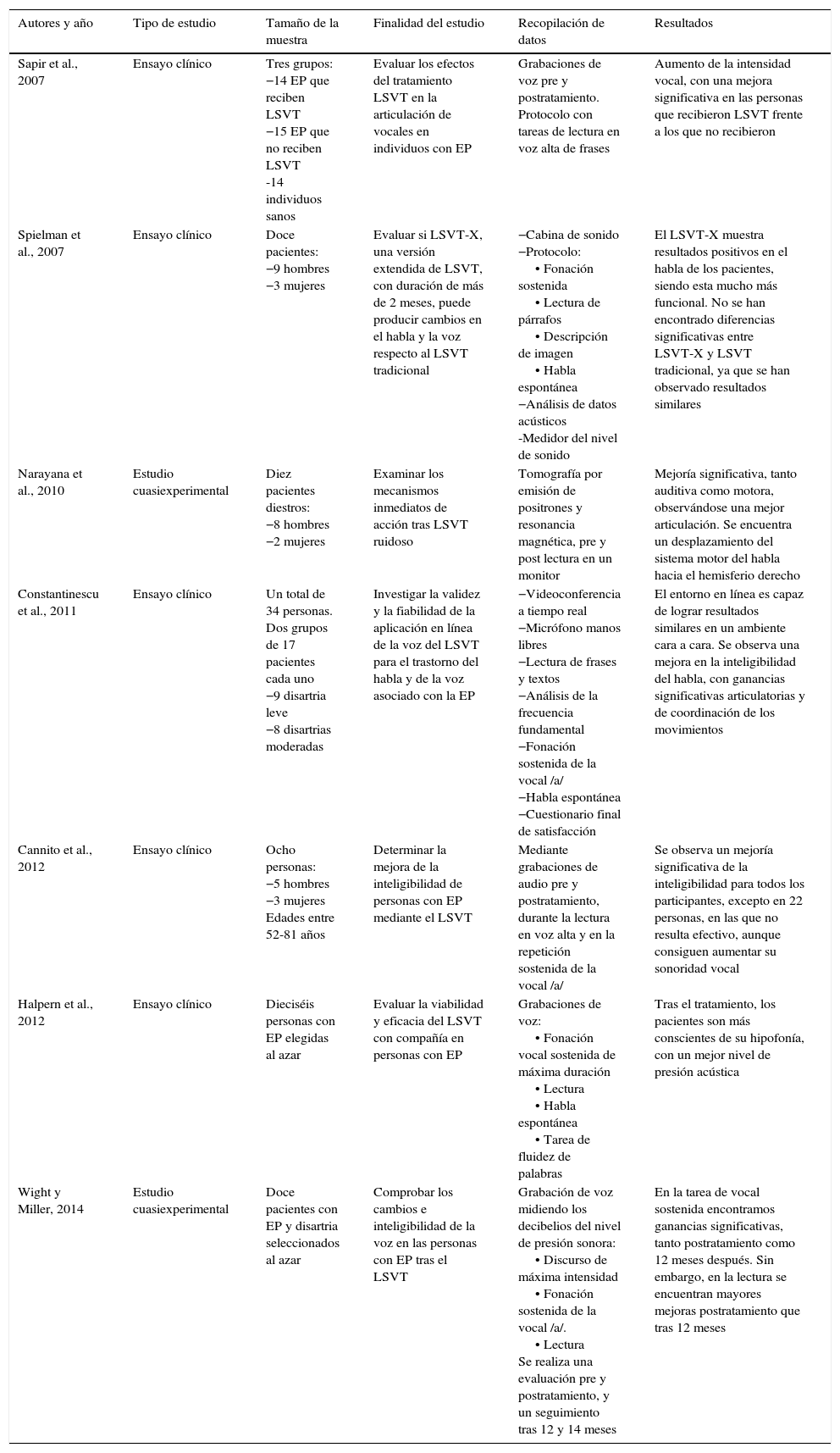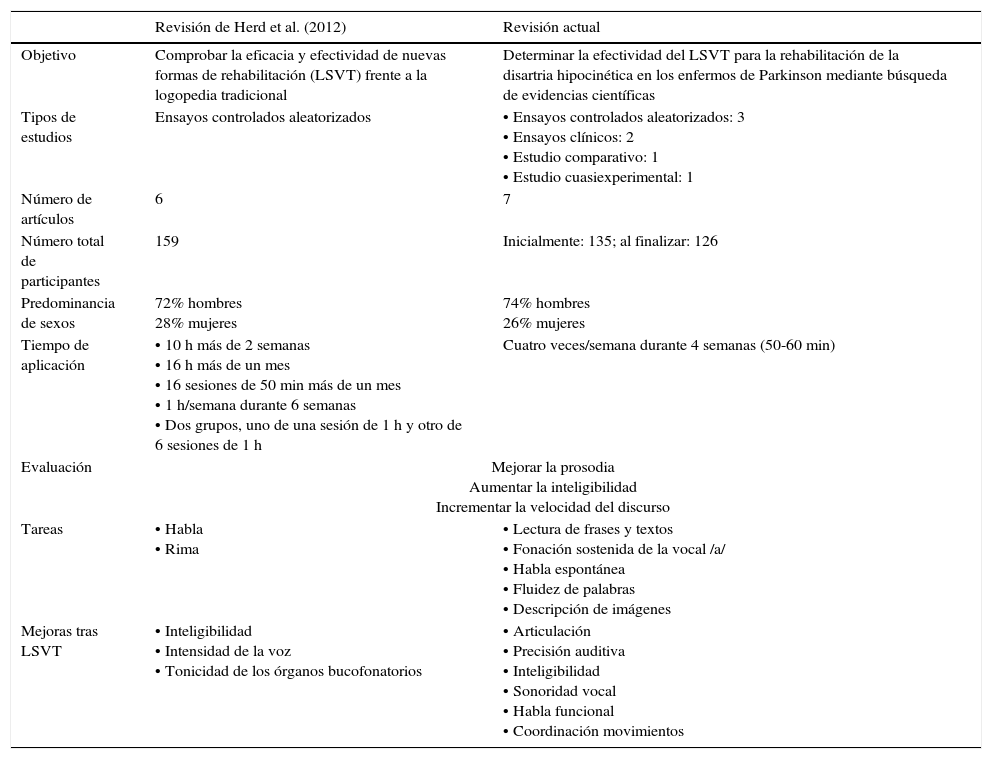La disartria es una alteración neurológica del sistema nervioso central y/o periférico que afecta al control muscular de los mecanismos del habla. La enfermedad de Parkinson se caracteriza por tener disartria hipocinética, con un habla débil, lenta y monótona, afectándose la respiración, la resonancia, la fonación, la prosodia y la articulación. Existe un tratamiento de voz llamado «Lee Silverman» que estimula y educa al paciente para producir una voz más alta a través del aumento del esfuerzo vocal.
El objetivo de esta revisión, es determinar la efectividad del tratamiento de voz «Lee Silverman» como método rehabilitador logopédico de la disartria hipocinética en los pacientes con EP.
En cuanto al método, se realiza una revisión bibliográfica en las bases de datos Pubmed y Cochrane Plus. Los artículos que se seleccionan son 65, que tras los criterios de inclusión y exclusión se acotan a 7, realizándose posteriormente un análisis comparativo entre ellos.
Los resultados del estudio y la comparación con otra revisión exponen mejoras significativas tras el tratamiento, observándose cambios especialmente en la inteligibilidad y la intensidad de la voz, con un aumento de la sonoridad vocal y una mayor tonicidad de los órganos bucofonatorios, con una mejora de la articulación y coordinación de los movimientos, provocando un habla más funcional.
En conclusión, los resultados evidencian que el tratamiento es eficaz para la rehabilitación de la disartria hipocinética en los enfermos de Parkinson. Sin embargo, los resultados no pueden considerarse universales, ya que solo se comparan 7 artículos, no siendo suficientes para apoyar o refutar la efectividad del tratamiento.
Dysarthria is a neurological disorder of the central and/or peripheral nervous system that affects muscle control mechanisms of speech. Parkinson's disease (PD) is characterised by hypokinetic dysarthria, which produces a weak, slow and monotonous speech. It is affected by breathing, resonance, phonation, prosody, and articulation. There is a voice treatment called “Lee Silverman” (LSVT), which stimulates and educates the patient to produce a higher voice through the increase of vocal effort.
The purpose of this review is to determine the effectiveness of LSVT as a method of speech therapy rehabilitation of hypokinetic dysarthria in patients with PD.
A literature review was conducted in the PubMed and Cochrane databases. A total of 65 articles selected articles, but they were reduced to 7 after applying the inclusion and exclusion criteria. A comparative analysis was performed on these.
The results of the study and comparison with other reviews have shown significant improvements after LSVT. Significant changes have been observed in intelligibility, voice intensity with an increase in vocal loudness and greater tone of the buccal-phonation organs, as well as an improvement in the articulation and coordination movements. This has led to a more functional speech.
To conclude, the results show that LSVT could be effective for the rehabilitation of the hypokinetic dysarthria in Parkinson's patients. However, the results cannot be considered universal, as only 7 articles have been compared, which is not sufficient to support or refute the effectiveness of the treatment.
















